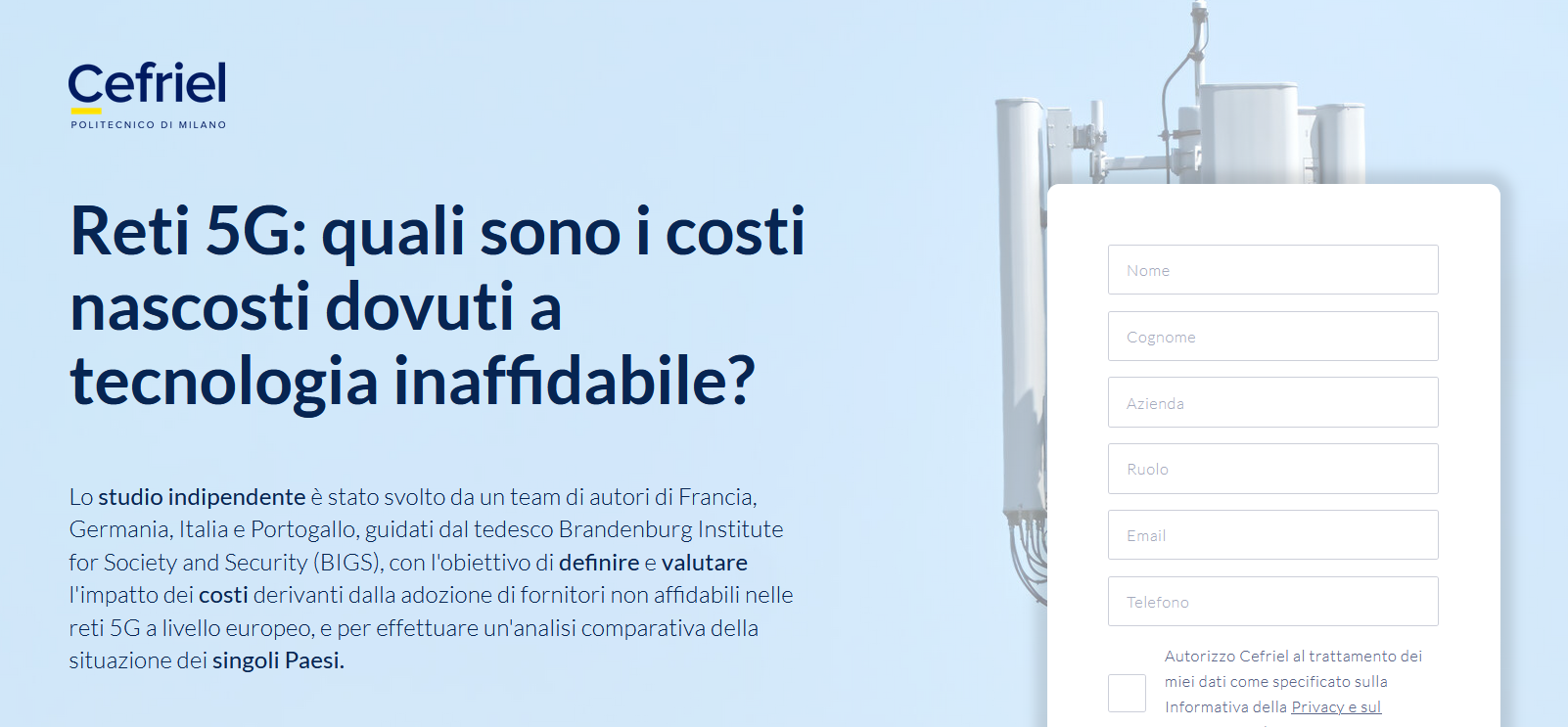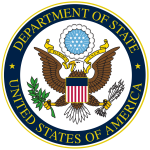
Project Description
5G is considered a transformative technology that will soon be the basis of a high increase in productivity. 5G networks have started becoming available in several countries and are initially offering substantially higher download rates than 4G/LTE. In the future, however, further services will emerge from this new generation of cellular systems due to increased capacity, high speeds and low latency. Many existing industries will digitalise an increasing share of their value chain and run production and services over these mobile networks, thereby making 5G networks a quasi-supercritical infrastructure.
Countries expect a high degree of trustworthiness from those providing 5G, given that it is a supercritical infrastructure of the future. In addition to the requisite technological skills, the criteria for trustworthiness include an untarnished reputation and an unwavering commitment to respect the laws and rules of the country in which they are providing the network.
If untrusted companies are nevertheless to play a role in setting up 5G networks in Europe, considerable costs can be expected. Only some of these costs are incurred by the mobile network operators, who are – absent any further regulation – free to make their own decisions about their network providers. But many of the costs will be borne by other sections of society, such as telecommunications customers or taxpayers, who, without further regulation, have no input on the selection of network equipment provider. Additionally, some of these costs will only be incurred long after the network has been set up, leading to a risk that these costs will not be adequately taken into account in the initial investment decision.
Within this project, we reveal the hidden costs of these untrustworthy network vendors and, insofar as possible, calculate the costs more precisely for four European countries (Germany, France, Italy, and Portugal).
Publications
Policy Paper:
The Hidden Cost of Untrusted Vendors in 5G Networks
Versteckte Kosten nicht-vertrauenswürdiger Anbieter in 5G-Netzwerken
Les coûts cachés engendrés par la présence
d’équipementiers mis en doute
I costi nascosti dei fornitori non affidabili nelle reti 5G
Country Studies:
State of Discussion and Estimations for Germany
Stand der Diskussion und Einschätzungen für Deutschland (in German)
State of Discussion and Estimations for Italy
State of Discussion and Estimations for Portugal
Estado da Discussão e Estimativas para
Portugal (in Portugese)
State of Discussion and Estimations for France
Le présent état des lieux pour la France (in French)
Other Publications:
Blogpost: Are there hidden costs of untrusted technology in 5G private networks?
Access to the Italian version of the policy paper and country study:
Authors
Prof. Dr. Christian Dörr
Prof. Dr. Christian Dörr studied computer science and business administration at the University of Paderborn and has obtained a joint PhD in computer science and cognitive science from the University of Colorado at Boulder, USA. He is professor for cybersecurity and enterprise security at the Hasso-Plattner-Institute for Digital Engineering and the University of Potsdam. His core area of expertise is network and communication security, cyber threat intelligence and critical infrastructure protection.
Dr. Enrico Frumento
Dr. Enrico Frumento is a Senior Domain Specialist in the cybersecurity team at Cefriel, ICT Center of Excellence for Research, Innovation, Education and industrial Labs partnerships. He is the author of subject-related publications and books and member of the European CyberSecurity Organisation. His 20+ years of research activity focuses on unconventional security, cybercrime intelligence technologies tactics and techniques, the contrast to the modern social engineering and dynamic assessment of organisations‘ vulnerabilities corresponding to tangible and intangible assets at risk.
Carlos Oliveira
Carlos Oliveira has an MScC in Software Engineering from the University of Coimbra, and is the Head of New Ventures for Ubiwhere, a company focused on Future Internet Technologies and Smart City platforms since its founding. Carlos has also worked as a Senior Product Manager in large-scale data-intensive consumer products where he has dealt with the practical implications of handling and securing large swathes of consumer information and has many years of expertise in R&D and commercial projects in the telecommunications sector.
Gianmarco Panza
Gianmarco Panza is a Senior Domain Specialist in the different fields of networking at at Cefriel, ICT Center of Excellence for Research, Innovation, Education and industrial Labs partnerships. He received a degree in Information Science Engineering at the University of Padova and a Master degree in ICT at Cefriel/Politecnico di Milan. He teaches in ICT master courses and company employees training on next-generation networks. He has several IEEE publications in the Digital Signal Processing and Networking areas and is a senior IEEE Member. His competences span from planning and design to testing and validation, as well as covering the novel services enabled by the next generation of networks, as 5G and beyond.
Stefan Rausch
Stefan Rausch has an MA in political science and is a governmental relations specialist and project manager at the public affairs consultancy Rubis Development Group, focusing on defense, security and cyber-related topics. He has studied political science, communication and area studies in Rostock and Tallinn and worked at the Chair of Comparative Politics of the University of Rostock before joining Rubis DGroup in 2015.
Dr. Johannes P. Rieckmann
Dr. Johannes P. Rieckmann studied economics and business studies in Bremen and Paris and holds a PhD. in development economics from University of Göttingen. He is senior research fellow at BIGS, and an alumni DAAD-AICGS research fellow.
Dr. Tim H. Stuchtey
Dr. Tim H. Stuchtey studied economics at the Westfälische Wilhelms-Universität Münster and has a PhD in economics from Technische Universität Berlin. He is the director of the Brandenburgisches Institut für Gesellschaft und Sicherheit (BIGS), a civil security think tank with a focus on economic aspects of security based in Potsdam. Tim is also a nonresident fellow at the American Institute for Contemporary German Studies (AICGS) in Washington, DC..
Dr. Reda Yaich
Dr. Reda Yaich is a senior researcher and cybersecurity team leader at IRT SystemX. Reda holds as PhD in Computer Science from the ENS Mines of Saint-Etienne with a focus on Trust Management using Artificial Intelligence technologies. He served as lecturer and/or research assistant in several universities (e.g. University of Saint-Etienne, University of Lyon) and engineering schools (ENS Mines Saint Etienne, Telecom Bretagne, IMT Atlantique, ENSIBS, Telecom Sud-Paris). Reda has several publications in journals and conferences related to Decentralized Access Control, Authorization and Digital Trust Management.
Contact Person
If you have any questions about the project, please contact Tim Stuchtey.



